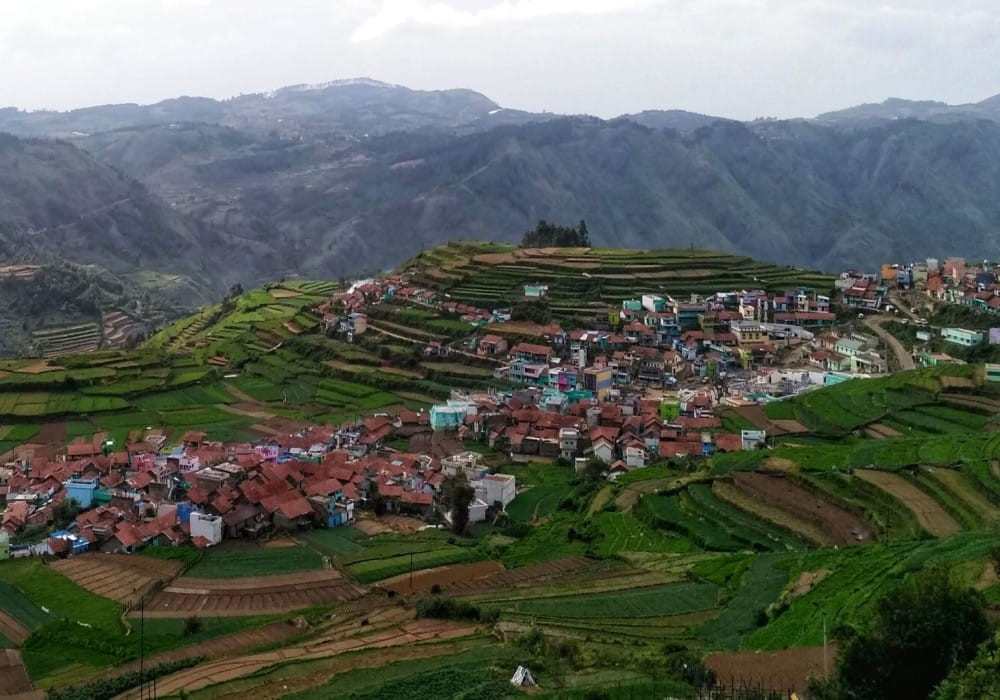
Last Updated At: 13-Dec-2023
14 Best Facts About Portugal | You Need To Know In 2024
Portugal is a fascinating European country with a vibrant culture and a long history. It is renowned for its breathtaking Atlantic Ocean shoreline and is nestled on the Iberian Peninsula. The nation's stunning landscapes, which range from dense forests to undulating vineyards, have a distinct charm that attracts tourists worldwide. Lisbon, the capital of Portugal, is renowned for its vibrant streets, grand architecture, and energetic atmosphere. Portugal offers mouthwatering Portuguese cuisine, renowned wines, and welcoming hospitality that makes guests feel at home. Portugal provides a blend of heritage and modernity.
List Of 14 Interesting Facts About Portugal
Here are some fascinating Portugal facts that you could find helpful whether you're thinking of visiting or want to know more about it:
1. Europe's oldest nation is Portugal
One of the oldest countries in Europe, Portugal has a long history that dates back to the 12th century. Its distinctive Portuguese cultural heritage is influenced by centuries of exploration, including its language, art, and architecture. The nation's maritime heritage, discoveries, and links to the world's markets have contributed significantly to developing its enduring European persona.
2. Lisbon is home to the oldest bookshop in the world
The Bertrand Bookstore, often cited as the oldest continuously operating bookstore in the world, is proudly located in Lisbon, the capital of Portugal. This historical location opened in 1732 and has witnessed centuries of literary culture and continues to amaze visitors with its quaint ambience. Lisbon's continuing literary heritage and The Bertrand Bookstore contribute to maintaining the world's literary heritage.
3. The monarchs with the shortest and longest reigns
The history of Portugal includes both swift and prolonged royal reigns. The shortest reign is that of Queen Maria II, who ruled for only 34 days in 1826. King Dom Joo II, on the other hand, had the longest reign, ruling from 1481 to 1495, or over 49 years. The rich tapestry of Portugal's monarchy, accentuated by periods of stability and change, is reflected in the reigns of these kings and queens.
4. There is constant time for coffee
Coffee consumption is an essential aspect of daily life in Portugal. There is always time for a relaxing coffee break, whether in the busy city or the charming villages. The rhythm of the country is strongly ingrained with the culture of coffee, whether it be an espresso at a neighbourhood café or a "Bica," the Portuguese word for a potent espresso shot.
5. Portugal is home to one of the oldest
The University of Coimbra, founded in 1290, is one of the oldest universities in Europe and is located in Portugal. It is a UNESCO World Heritage site because of its extensive history and beautiful architecture, which includes the Joanina Library. The institution is still a centre of intellectual splendour, significantly contributing to Portugal's cultural and educational traditions.
6. Universities in the world
Portugal is home to various colleges that provide top-notch learning and research opportunities. The University of Lisbon, the University of Porto, and the University of Coimbra are notable institutions renowned for their historical relevance and academic brilliance. Portugal's image as a developing worldwide hub for higher learning and innovation is made simpler by these universities.
7. One of the best surf locations in the world is Portugal
Portugal has established itself as one of the top surfing destinations in the world. The region's gorgeous shoreline and reliable Atlantic swells offer excellent conditions for surfers of all skill levels. Surfers from all over the world visit places like Peniche, Ericeira, and Nazaré. Portuguese surfers enjoy a paradise of waves considering the country's diversified coastline and thriving coastal culture.
8. A significant concentration is on renewable energy
Portugal has come a long way in emphasising alternative energy sources. The nation has made significant investments in wind, solar, and hydroelectric electricity out of a commitment to sustainability. Portugal is committed to lowering carbon emissions and extending its position as a pioneer in developing renewable energy, as evidenced by projects like the Alqueva Dam and the world's first wave farm.
9. Portugal's most well-known export and national beverage is port wine
Portugal's most well-known export and cherished national libation is port wine. Its robust aromas and sweet undertones distinguish this fortified wine from the Douro Valley. It has a long history with distinctive kinds, including Tawny, Ruby, and Vintage. Portugal's economy benefited from port wine, but it has also made substantial contributions to Portugal's cultural heritage and global notoriety.
10. Piri has its roots in Portugal
"Piri" probably relates to "piri-piri" sauce, which has Portuguese origins and is a hot chilli pepper sauce. Through African trading routes, this sauce, which is derived from the Swahili phrase "piri-piri," which means pepper, was introduced to Portugal. Popularity grew and became a Portuguese cooking staple, especially in grilled chicken dishes. The impact of piri-piri sauce emphasises the confluence of flavours that characterise Portuguese cuisine.
11. The world's largest cork producer is Portugal
Portugal, which produces a sizable amount of the world's cork, holds the title of being the largest cork producer in the world. The cork oak trees, primarily discovered in the cork forests of Portugal, are a trustworthy supplier of cork, commonly used for flooring, wine stoppers, and other products. The nation's commitment to sustainable cork harvesting underlines its determination to preserve natural resources and foster various industries.
12. Portugal used to be very powerful
Portugal was a powerful maritime nation throughout the Age of Exploration, recognised for its innovative trade and exploration routes. Vasco da Gama and Ferdinand Magellan were among the explorers who discovered new lands and built trade routes. Portugal's influence spread from Africa to Asia, creating a sizable empire abroad. This historical period still serves as evidence of Portugal's great global influence, despite its strength waning over time.
13. Global pilgrimage sites include Fátima
Fátima, which is in Portugal, is a well-known destination for pilgrims from all over the world. It attracts millions of pilgrims looking for spiritual comfort and divine intervention because of the 1917 Marian apparitions. The Holy Trinity Church, Chapel of Apparitions, and Basilica are all parts of the Fátima Sanctuary. The value of this holy site transcends national boundaries and unites believers in their dedication and faith.
14. UNESCO world heritage sites
With 17 UNESCO world legacy sites, Portugal proudly displays its rich cultural and natural legacy. These include the Tower of Belém, a reminder of Portugal's nautical past, the mediaeval elegance of Oporto's old centre, the intricate Gothic design of the Monastery of Batalha, and the stunning vistas of the Douro Valley. These locations capture the nation's historical, aesthetic, and environmental significance on the world stage.
Read More : Places To Visit In Portugal
Adotrip is a fantastic option for a travel companion while planning a trip to Portugal if you want to have an easy and enjoyable experience. Adotrip offers thorough travel guides, skillfully designed itineraries, and local expertise to enhance your travel experience. Discover fascinating information about Portugal. Use Adotrip's assistance as you quickly and easily explore top tourist destinations in Portugal.
With us, nothing is far!
Book Portugal Tour Packages
Frequently Asked Questions
Q1. What are some notable Portuguese explorers and their discoveries?
A1. Here are some notable Portuguese explorers and their key discoveries mentioned below:-
- Prince Henry the Navigator (1394-1460)
- Vasco da Gama (1460s-1524)
- Ferdinand Magellan (1480-1521)
- Bartolomeu Dias (1450-1500)
- Afonso de Albuquerque (1453-1515)
- Diogo Cão (1452-1486)
Q2. How does Portugal's maritime history influence its culture?
A2. The maritime traditions found in art, gastronomy, and famous festivals in Portugal help form its culture. The nation's identity continues to be linked with nautical accomplishments, which stand for exploration and adventure.
Q3. What are some traditional Portuguese dishes and culinary delights?
A3. Here are some of the traditional Portuguese dishes and culinary delights mentioned below:
- Bacalhau à Brás
- Pasteis de Nata
- Arroz de Marisco
- Chouriço Assado
- Amêijoas à Bulhão Pato
- Açorda
Q4. How is Portugal known for its wine production?
A4. Due to its historic vineyards, distinctive grape types, and well-known wine areas like Douro and Porto, which produce both traditional and modern wines, Portugal is renowned for its wine production.
Q5. What are some iconic landmarks and attractions in Portugal?
A5. Here are some of the iconic landmarks and attractions in Portugal:
- Pena Palace
- Douro Valley
- Jerónimos Monastery
- São Jorge Castle
- Cabo da Roca
- Óbidos Castle
- Cristo Rei Sanctuary
Q6. What are some famous Portuguese festivals and celebrations?
A6. Here are some of the famous Portuguese festivals and celebrations:-
- Festival do Crato
- Caminhos Film Festival
- Festa de São João do Porto
- Feira de São Mateus
- Festival do Marisco
- Carnivals
Q7. How has Portugal's economy evolved in recent years?
A7. With improved fiscal stability, increasing exports, and expansion in the tourism and technology industries, Portugal's economy has made considerable strides in recent years.
Q8. What are some important historical events in Portugal's past?
A8. Here are some of the important historical events in Portugal past mentioned below:-
- Age of Exploration (15th-16th centuries)
- Battle of Aljubarrota (1385)
- Carnation Revolution (1974)
- Financial Crisis (2010s)
- Portuguese Colonies' Independence (20th century)
- Expo '98 in Lisbon
Q9. How does Portugal celebrate its religious holidays?
A9. Portugal observes religious holidays with a strong sense of tradition and devotion. Church services, processions, and traditional meals honour holidays, including Easter and Christmas, reflecting the nation's rich Catholic background.
Q10. What are some key aspects of Portugal's arts and literature?
A10. The arts and literature of Portugal exhibit a fusion of traditional and modern influences. Fado music and Manueline architecture are notable, and writers like José Saramago and Fernando Pessoa have left enduring literary legacies.
--- Published By Adotrip
Latest Blogs

Long Weekends In India 2025 - List of Holidays

Kazakhstan Travel Guide 2025: Affordable Luxury, Visa Free E...

Think Ayodhya is Just Temples? Discover Its Hidden Artistic...

Why Azerbaijan is the Best Budget Friendly Alternative to Sw...










 Dubai
Dubai Malaysia
Malaysia USA
USA





